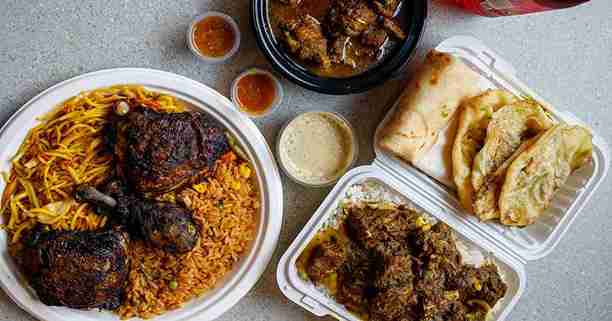
traditional nigerian dishes and their ideal oils
Nigerian cuisine is rich in diverse flavors, colors, and textures, with each dish having a preferred type of oil that enhances its taste and authenticity. Choosing the right cooking oil for traditional Nigerian meals not only impacts the flavor but also affects the health benefits and cooking process. Below is a guide to the best oils for some of Nigeria’s most popular dishes.
Jollof Rice, a staple across West Africa, requires a neutral-flavored oil that enhances the tomato-based sauce without overpowering it. The best choices include:
Egusi soup, made with melon seeds, is best cooked with red palm oil. This oil enhances the earthy, nutty flavor of the melon seeds and contributes to the soup’s vibrant orange-red color.
The thick and slimy texture of Ogbono soup pairs well with palm oil, which adds a rich depth of flavor while helping the soup retain its traditional consistency.
Efo Riro, a classic spinach-based stew, can be prepared with either:
Akara (bean cakes) is best deep-fried in:
This steamed bean pudding is ideally prepared with vegetable oil or groundnut oil, ensuring a smooth, well-blended texture without overpowering the flavor.
Banga Soup, a delicacy of the Niger Delta region, is made from palm fruit extract. The soup is naturally rich in palm oil, giving it a thick, creamy, and flavorful base.
Suya, Nigeria’s famous spicy grilled meat skewers, is best basted with groundnut oil, which enhances the smoky flavor while preventing the meat from drying out.
This popular Nigerian snack is deep-fried in vegetable oil, such as canola or sunflower oil, which gives it a light, airy, and crispy texture without a greasy aftertaste.
Ayamase, also known as Designer Stew, is a spicy green pepper sauce served with Ofada Rice. It is traditionally cooked with bleached palm oil, which deepens the flavor and enhances its distinct taste.
Ogiri, a fermented locust bean condiment, is commonly used in soups like Oha and Nsala. These soups rely on palm oil for an authentic, rich taste that complements the intense umami flavor of ogiri.
This hearty dish can be prepared with:
Conclusion
The choice of oil plays a crucial role in achieving the authentic taste and texture of traditional Nigerian dishes. While palm oil is deeply rooted in many traditional recipes, vegetable oils offer modern alternatives for those seeking a lighter option. Understanding which oils to use for each dish ensures that the flavors remain true to their cultural origins while also catering to personal dietary preferences.
UGOMBA NOEL LTD
World bank Housing Estate, Umuahia Abia State.
CONTACT
09169429964
QUICK LINKS